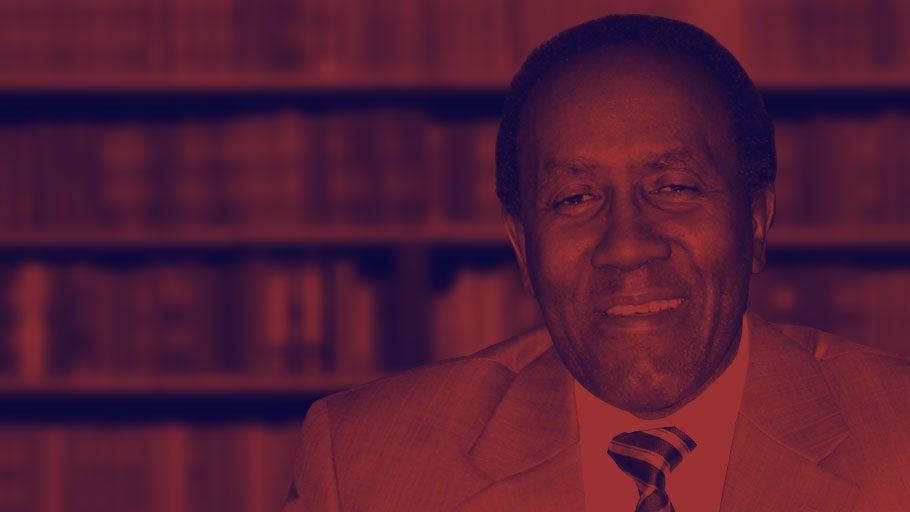The English-speaking Caribbean has created a culture of governance in which democratic elections are held free of violence and voters cast their ballots and the transfer of power is orderly and gracious. The exception of this institutionalization of democracy was the coup in Grenada in 1979 when the young Turks in the New Jewel Movement overthrew the Gairy regime and announced intentions to hold democratic elections that were never forthcoming.
Such a signal achievement should not be taken for granted. In many parts of the world, the quest to establish democratic processes rather than leading to societal consensus often triggers large scale bloodshed. That is the case in Egypt as the Arab Spring has come full circle having toppled a military dictator, a fleeting democratic interlude and a bloody return to a new form of military dictatorship.
India is the most populous democracy and has just concluded a mammoth electoral process that brought over 550 million people to the polls. The Indian electorate has given a huge mandate to the Hindu Nationalist Party led by Narendra Modi. The formerly dominant Congress Party has been spurned by the electorate.
The challenge confronting the English-speaking Caribbean is the growing threat of crime. The people of Jamaica, Trinidad and Tobago, Guyana and the Eastern Caribbean have witnessed the slow deterioration of public safety. Quite frightingly in Trinidad and Tobago a fortnight ago a prominent prosecutor, Dana Seetahal, was brutally assassinated while driving home. She received approximately fifteen bullets from high powered rifles that ended an outstanding career in jurisprudence.
Dana Seetahal was a Senior Counsel, a former Independent Senator in Parliament and an author of a law text on legal procedure in the Caribbean. She had successfully represented the Crown in the case against Abu Bakr’s seized property. Bakr’s extremist Islamic group was responsible for the failed coup in 1990. At the time of her death, Dana Seetahal was one of the leading prosecutors in the murder case of Naipaul-Coolman.
This is a grave unprecedented development and is designed to intimidate officers of the court. Both Jamaica and Trinidad have criminal justice systems in which trials take a long time to be resolved and there is a low conviction rate. More crippling to the system, witnesses for high profiled trials are often intimidated and fail to turn up in court.
In democratic societies, the criminal justice system is by nature complex with essential component parts that must be synchronized if the system is to function effectively. The attack on officers of the court is a dangerous development and hopefully does not represent a new tactic on the part of the organized criminal gangs.
Jamaica has made some strides in cleaning up the corruption in its criminal justice system. The recent conviction of dancehall impresario, Vybz Kartel, and co-conspirators was a test of the criminal justice system in Jamaica. The sloppy handling of evidence and the failure of a senior police officer to enter his notes as corroborative evidence gave the appearance that elements in the Jamaica Constabulary Force were trying to throw out the case. In the end, Vybz Kartel and his accomplices were found guilty by the Jury and given life sentences.
The conviction of James Forbes, a Senior Superintendent in the Jamaica Constabulary Force for obstruction of justice in a case involving a wealthy businessman and an elected official. The businessman was given a speeding ticket and offered the two police officers a bribe. The Senior Superintendent was summoned to make the charge go away. Instead, the Senior Superintendent was fined $800,000 and the businessman and the elected official are awaiting trial.
If the police in the Caribbean are to develop into a robust anti-crime fighting force, there has to be zero tolerance for all forms of corruption. The United States Department documents state clearly that in the Eastern Caribbean senior elected officials are not implicated in any form in narco-trafficking. In the lower echelons of law enforcement there have been police officers who have been corrupted by the lucrative drug trade.
The Eastern Caribbean based on its geographical location is used by drug cartels to move sizeable quantities of the drugs on its way to the United States and Europe. That transshipment involvement invariably brings unintended consequences and does collateral damage to Caribbean Society. With narco-trafficking come gangs, guns and internecine gang warfare. Homicide rates in St. Kitts and St. Lucia have risen in recent decades.
Studies conducted by the World Bank and the United Nations calculate that rising crime in the region is detrimental to economic growth and undermines the “safety halo” critical for the tourist industry to thrive.
Caribbean governments have paid careful attention to the safety of tourists and the custom of all-inclusive hotels have enhanced that security but isolated visitors from being exposed to the fulcrum of Caribbean culture.
Caribbean governments must face the challenge of crime frontally and ensure that police departments are trained to fight the scourge of transnational and indigenous crime. There was a time in the history of criminal justice when the presumption was that law enforcement could not independently reduce crime as that was determined by macro structural forces. We have seen in the case of urban police departments like the New York Police Department that the quick turn-around of data, crime mapping, identification of hot spots and getting guns off the streets can lead to sharp reductions in violent crime.
Nonetheless, the fight against crime has to become the responsibility of all stakeholders in democratic society. That is especially the case in democratic societies with limited resources.















